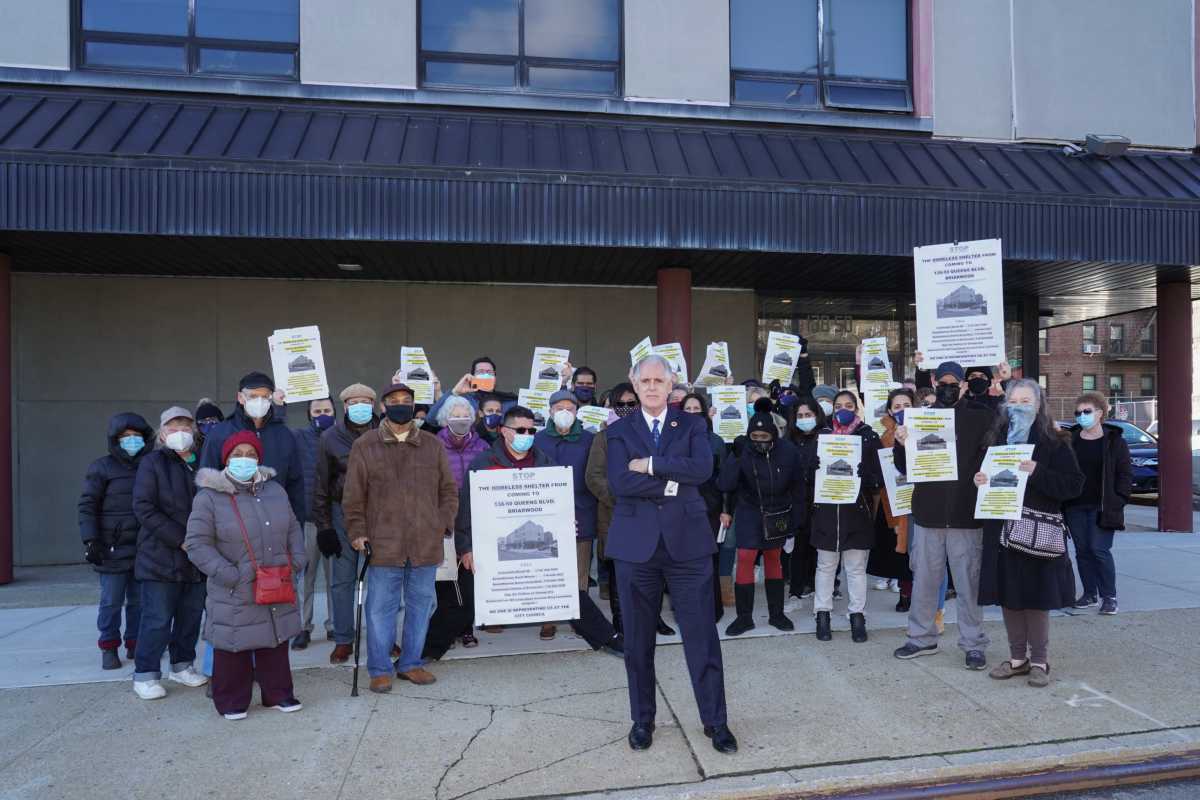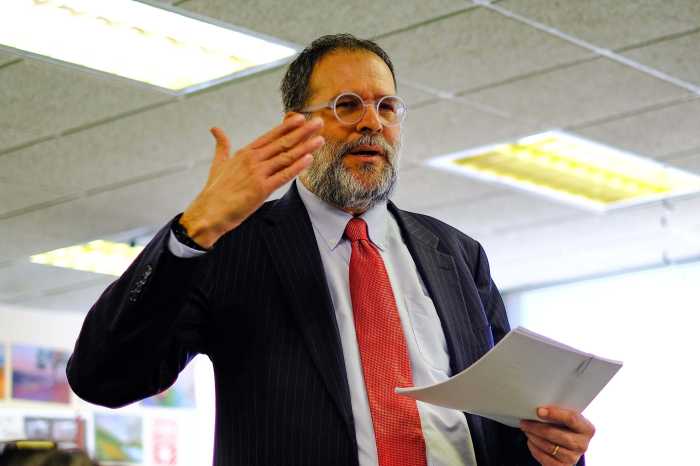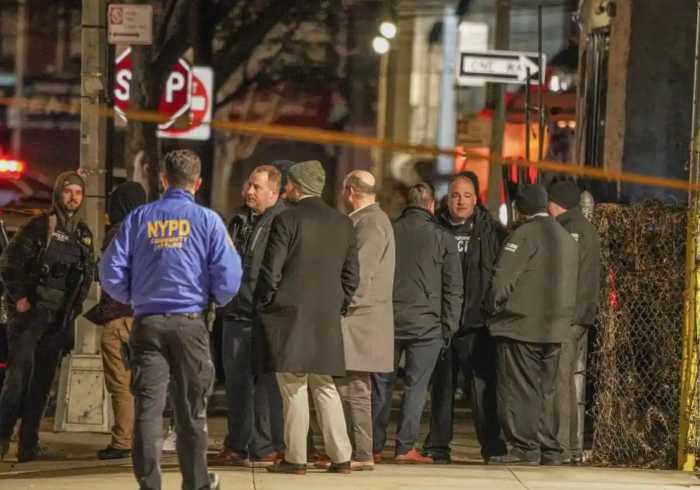Looking ahead to 2022, here are three ongoing developments in central Queens to look out for, including the opening of the controversial Briarwood men’s homeless shelter, the Queens Boulevard development in Forest Hills and the LaGuardia AirTrain project.
Briarwood men’s homeless shelter
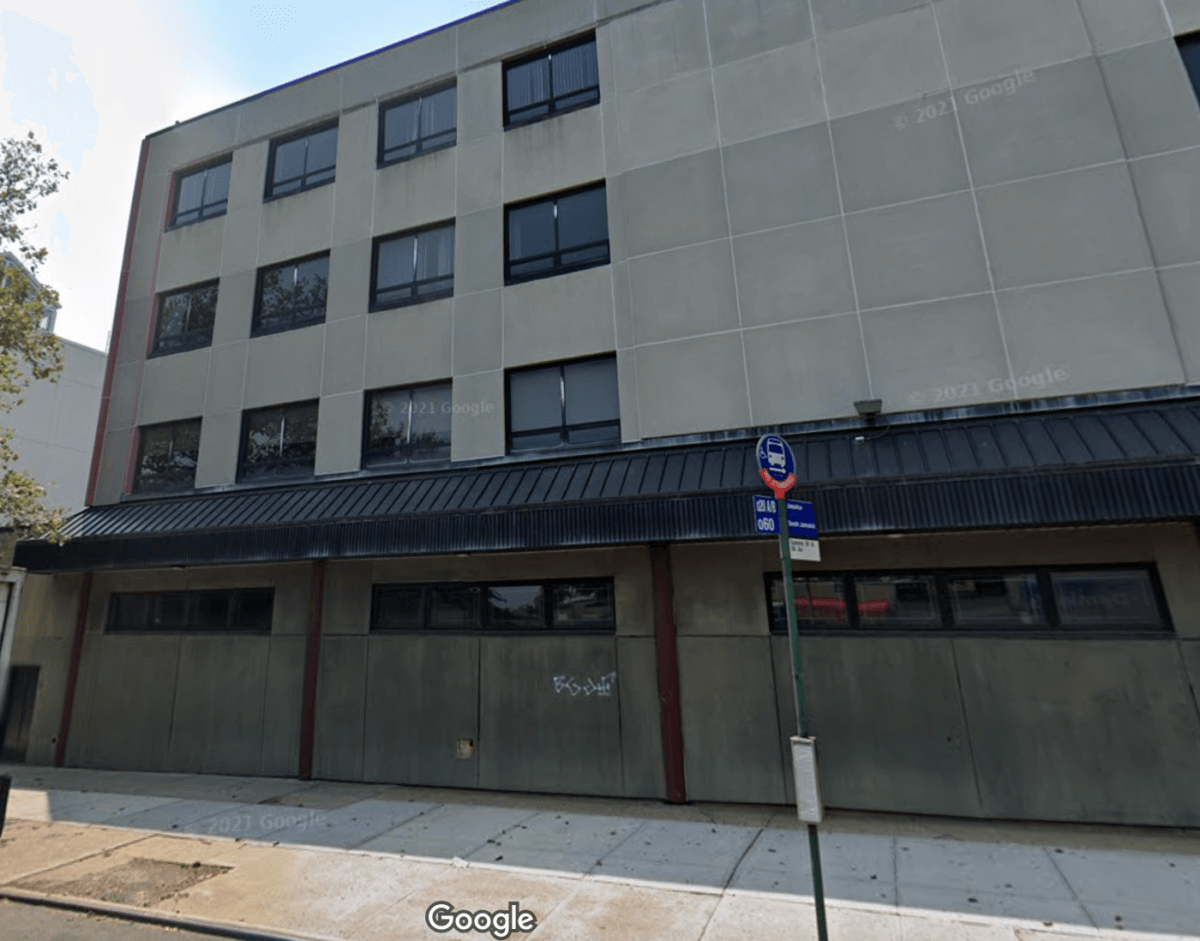
When the city announced plans to place a 175-bed men’s “barracks-type” shelter in Briarwood sometime in 2022, residents rallied and launched an online petition to shut down the facility in their neighborhood. The proposed site for the shelter, located at 138-50 Queens Blvd., is within close proximity to Archbishop Molloy High School, Hover-Manton Children’s Playground and the Briarwood Public Library.
At a rally held in January, Councilman James Gennaro said the shelter will effectively “kill the potential of new development and vaporize untold millions in commercial and residential property values.”
Gennaro and Senator Leroy Comrie also sent a letter to Mayor Bill de Blasio in June 2021 to abandon the city’s plans to open the shelter.
The Briarwood location will offer individuals the opportunity to be sheltered in their home borough, closer to their support networks, including schools, jobs, health care, family, social services and communities they call home, according to the Department of Homeless Services (DHS).
Westhab, a housing and social services provider, will supply those resources to the shelter, where 30% to 40% of the residents would be mentally ill and/or drug users. They will have the option of utilizing those services.
It’s an initiative under de Blasio’s “Turning the Tide on Homelessness” plan to end the use of stop-gap measures like cluster sites and commercial hotel facilities citywide.
DHS said their plan for transforming the city’s shelter system is “committed to ensuring that, over time, shelters are distributed equitably to meet the need in all five boroughs, including in communities like this, that do not have any DHS shelter of this kind (serving single adult New Yorkers).”
Queens Boulevard development
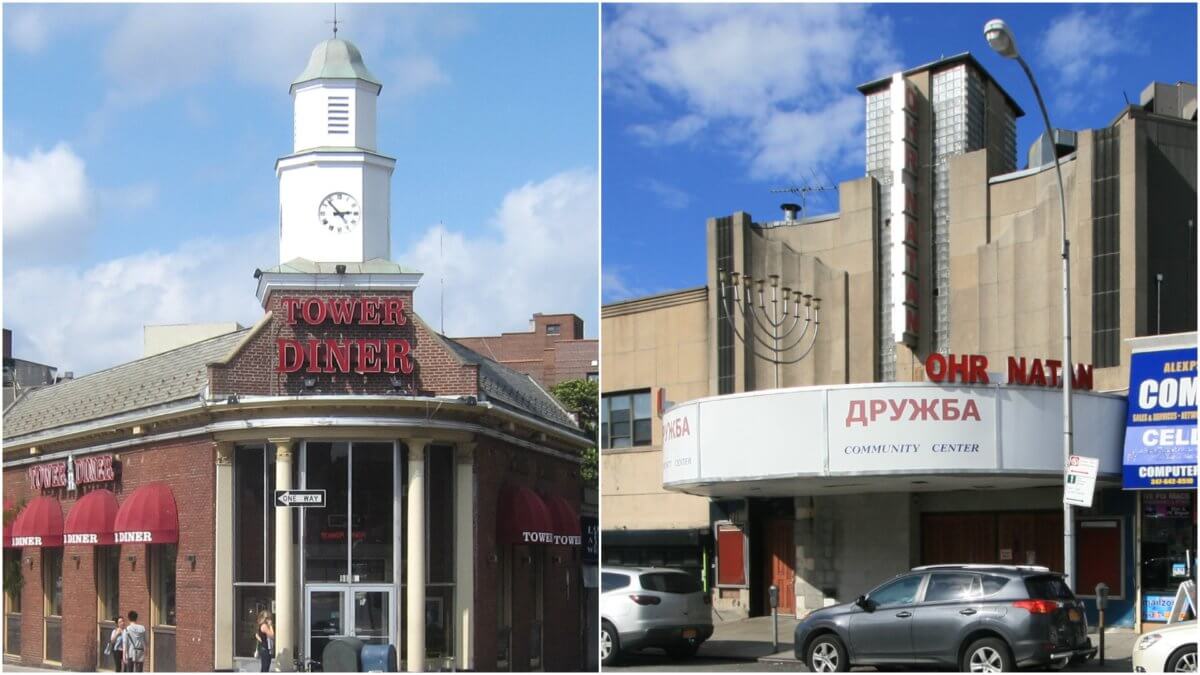
After public hearings and discussions regarding the demolition of the Tower Diner and Trylon Theatre to make way for a new development on Queens Boulevard, Community Board 6 in November voted in favor of the project, but with certain conditions.
The applicant, RJ Capital Holdings under Trylon LLC, is planning to erect a 15-story building on the triangular block of the Trylon Theatre that houses the synagogue at 98-81 Queens Blvd. and Tower Diner at 98-85 Queens Blvd. The proposal is a 153,000-square-foot development, which includes 144 total units with 44 of those units as affordable housing at an average of 80% Area Median Income (AMI) under the city’s Mandatory Inclusionary Housing Program, commercial space and parking spaces.
During the borough president’s virtual Land Use Committee hearing held on Dec. 23, Forest Hills residents read their testimony to save the Tower Diner and Trylon Theatre.
Evan Boccardi, who spoke on behalf of Michael Perlman, of the Rego-Kew Forest Preservation Council, said they’re not against the height of the building or its location, but the destruction of the art deco theater that harks back to the 1939 World’s Fair and the history of Queens.
“The developers spoke of willingness to integrate elements of the facade into the design of the new building, and we hope that the borough president will emphasize that clearly with the petition circulating the neighborhood in the amount of 4,100 signatures that people recognize the historical value of a building,” Boccardi said.
Following the board’s vote on the project, Queens Borough President Donovan Richards will review the plan and offer a yes or no recommendation. The proposal will then head to the City Planning Commission for approval, and the City Council for a final vote.
LaGuardia AirTrain development
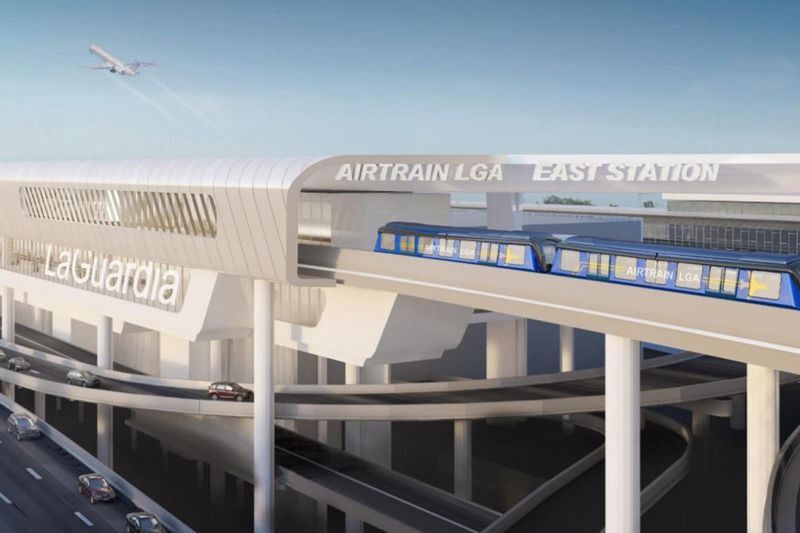
Plans to move forward with the LaGuardia AirTrain project have been halted after Gov. Kathy Hochul requested a thorough examination of mass transit options to reduce traffic and increase connectivity.
“We must ensure that our transportation projects are bold, visionary and serve the needs of New Yorkers,” Hochul said. “I remain committed to working expeditiously to rebuild our infrastructure for the 21st century and to create jobs — not just at LaGuardia, but at all of our airports and transit hubs across New York.”
A panel of three experts will study alternatives for the $2.1 billion project.
The experts will analyze alternative connections to the airport, such as dedicated bus lanes; a subway extension; new ferry service; light rail from nearby subway and commuter train stations; and other new and emerging technologies, according to the Port Authority.
The LaGuardia AirTrain, which would connect the airport to the Willets Point transportation hub near Citi Field, was proposed by former Gov. Andrew Cuomo.
According to the Port Authority, the LaGuardia AirTrain would reduce traffic congestion on local streets and highways and provide benefits identified by residents, including job creation and a $50 million investment in the Flushing Bay Promenade and other local parks.
The project has received criticism from East Elmhurst residents, lawmakers and local leaders, who have cited health and environmental impacts as well as a questionable approval process.
Those concerns include the project’s impact on communities; inadequate funding for park and promenade land; lack of targeted jobs for residents; property damages to businesses and homes; and overcrowding and accessibility issues on the LIRR and 7 train.
State Senator Jessica Ramos said the project “doesn’t serve our neighbors, nor does it actually provide a logistical, climate-conscious solution to the problem it’s supposed to solve.”

